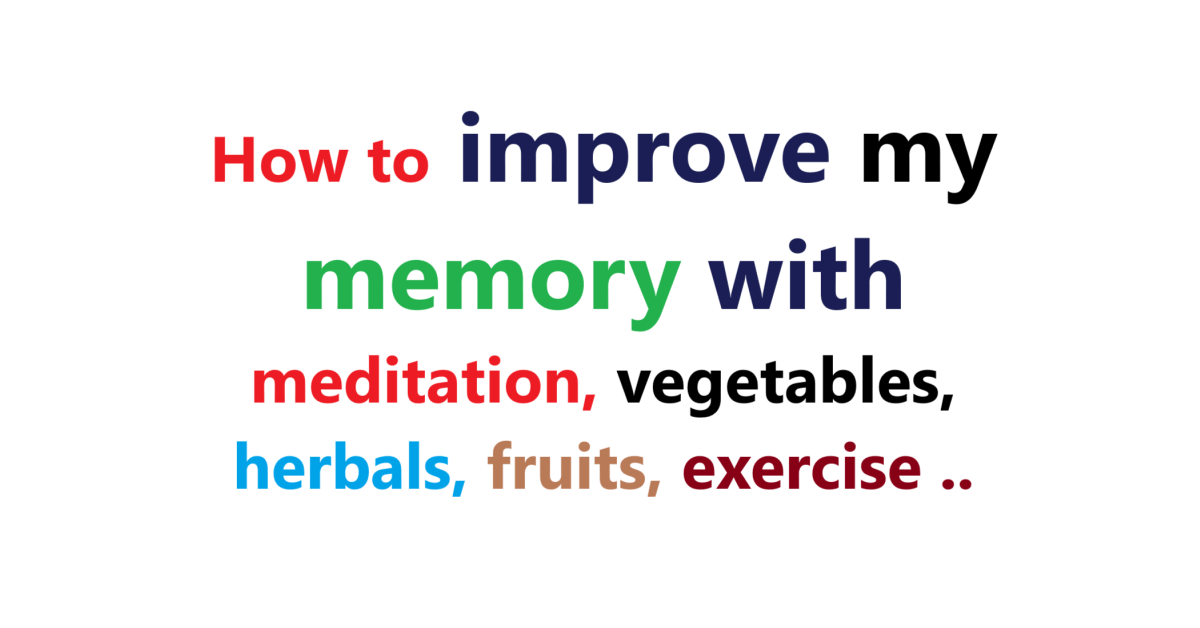Meditation is a practice that involves focusing the mind and eliminating distractions to achieve a state of mental clarity, relaxation, and emotional stability. There are various forms of meditation, but generally, it includes:
- Focus: This can involve concentrating on the breath, a mantra, or a specific thought, helping to anchor your mind and reduce wandering thoughts.
- Awareness: Many meditation practices encourage mindfulness, which means being aware of the present moment without judgment. This can involve observing your thoughts, feelings, and sensations.
- Relaxation: Meditation often promotes physiological relaxation and can reduce stress, leading to a sense of peace and well-being.
- Connection: Some forms of meditation aim to connect with a deeper sense of self or a higher power, fostering spiritual growth and insight.
- Benefits: Regular meditation can improve mental health, increase focus, enhance emotional regulation, reduce stress and anxiety, and promote overall wellness.
Different styles of meditation include mindfulness meditation, transcendental meditation, loving-kindness meditation, and guided visualization, among others. Each has its techniques and focuses, allowing individuals to choose one that resonates with them.
How to perform meditation
Performing meditation can be simple and can be tailored to fit your needs. Here’s a basic guide to get you started:
Basic Steps for Meditation
- Find a Quiet Space: Choose a calm environment where you won’t be disturbed.
- Choose a Comfortable Position: You can sit or lie down. If sitting, keep your back straight but relaxed. You can sit on a chair, cushion, or the floor.
- Set a Time Limit: If you’re just starting, you might want to meditate for 5 to 10 minutes. You can gradually increase the time as you become more comfortable.
- Close Your Eyes: This can help minimize distractions and deepen your focus.
- Focus on Your Breath:
- Take deep, slow breaths.
- Inhale through your nose, letting your abdomen expand.
- Exhale slowly through your mouth or nose, letting your abdomen fall.
- Pay attention to the sensation of your breath entering and leaving your body.
- Notice Your Thoughts: As you meditate, thoughts will arise. Don’t judge or suppress them; simply acknowledge them and gently bring your focus back to your breath.
- Use a Technique (optional):
- Mantra: Repeat a word or phrase silently to help maintain focus.
- Guided Meditation: Use a meditation app or video to guide you through the process.
- Body Scan: Gradually focus on each part of your body from head to toe, noticing any sensations.
- End with Awareness: When you’re ready to end your meditation, slowly bring your awareness back to your surroundings. Open your eyes slowly and take a moment before getting up.
- Reflect: Consider how you felt before and after the session. Journaling your experience can help track your progress.
Tips for Success
- Practice Regularly: Aim for consistency, even if it’s just a few minutes each day.
- Be Patient: It’s normal for your mind to wander. With practice, your ability to focus will improve.
- Experiment: Try different techniques or durations to find what works best for you.
How to improve memory using meditation
Improving memory through meditation can be an effective approach, as meditation promotes mental clarity, focus, and emotional well-being. Here are some strategies to help enhance memory through meditation:
Techniques for Improving Memory with Meditation
- Mindfulness Meditation:
- What: Focus on the present moment without judgment.
- How: Sit quietly and concentrate on your breath. When your mind begins to wander (which it will), gently bring your focus back to your breath. This practice helps enhance attention and cognitive control, which can improve memory retention.
- Visualization Techniques:
- What: Use mental imagery to reinforce memory.
- How: In a relaxed state, visualize the information you want to remember. Create vivid and detailed images, associating them with emotions or stories, which can enhance recall.
- Loving-Kindness Meditation:
- What: Cultivate feelings of love and compassion that promote emotional wellbeing.
- How: This practice can reduce stress and anxiety, which are detrimental to memory. By fostering a positive mindset, you create a more conducive environment for learning and memory retention.
- Body Scan Meditation:
- What: A technique that involves focusing on different parts of the body.
- How: As you relax each part of your body, you also promote awareness and focus, enabling better concentration and memory consolidation.
- Cognitive Meditation:
- What: Incorporating specific cognitive tasks into your meditation.
- How: Engage in mentally stimulating activities during meditation. For instance, you can mentally rehearse a presentation or quiz yourself on information you want to remember.
Additional Tips
- Regular Practice: Consistency is key. Aim for daily or regular meditation sessions (even short ones) to build your memory and cognitive function over time.
- Combine with Learning: Try meditating before or after learning new information. This can help consolidate memories and improve retention.
- Stay Mindful Throughout the Day: Incorporate mindfulness into your daily activities. Being present can enhance your ability to absorb and recall information.
- Focus on Gratitude: Practicing gratitude can help reduce stress and increase overall wellbeing, positively impacting memory.
- Motivational Quotes: Learn motivational quotes everyday.
Which herbals help to improve memory
Several herbal supplements have been studied for their potential to improve memory and cognitive function. Here are some of the most recognized ones:
1. Ginkgo Biloba
- Benefits: Often used to enhance cognitive function and memory, particularly in older adults. It may improve blood flow to the brain and reduce symptoms of dementia.
- How to Use: Typically taken as a standardized extract in capsule or tablet form.
2. Panax Ginseng
- Benefits: Known for its potential to enhance cognitive performance, reduce fatigue, and improve mental clarity.
- How to Use: Available in capsules, extracts, or teas.
3. Bacopa Monnieri
- Benefits: Traditionally used in Ayurvedic medicine, it may help improve memory and cognitive function, especially in the elderly.
- How to Use: Usually taken as a standardized extract in capsules.
4. Rhodiola Rosea
- Benefits: An adaptogen that may help reduce fatigue and improve mental performance under stress, leading to better overall cognitive function.
- How to Use: Typically consumed as a capsule or powdered extract.
5. Rosemary
- Benefits: Some studies suggest that rosemary may enhance memory and concentration. The aroma alone is said to have a memory-boosting effect.
- How to Use: Can be used as a tea, essential oil, or in cooking.
6. Sage
- Benefits: Preliminary research indicates that sage may have cognitive-enhancing effects and could improve memory, especially in older adults.
- How to Use: Can be consumed as a tea or taken as a supplement.
7. Ashwagandha
- Benefits: This adaptogenic herb is believed to help reduce stress and anxiety, which can improve cognitive function and memory indirectly.
- How to Use: Available in capsules or powders.
8. L-Theanine
- Benefits: While technically an amino acid found in tea, it promotes relaxation without drowsiness and may enhance focus and concentration.
- How to Use: Often consumed as a supplement or found in green and black tea.
Important Considerations
- Consult with a Healthcare Professional: Before starting any new supplement, especially if you have pre-existing conditions or take medications.
- Quality Matters: Choose high-quality supplements from reputable sources to ensure effectiveness and safety.
- Lifestyle Factors: Remember that a healthy diet, regular exercise, adequate sleep, and stress management are also crucial for memory improvement.
Which vegetables help to improve memory
Incorporating certain vegetables into your diet can support brain health and improve memory. Here are some of the best choices:
1. Leafy Greens
- Examples: Spinach, kale, collard greens, and broccoli.
- Benefits: Rich in antioxidants, vitamins (like K, E, and C), and beta carotene, leafy greens help reduce oxidative stress and inflammation, which may boost cognitive function.
2. Beets
- Benefits: High in nitrates, which can improve blood flow to the brain, potentially enhancing cognitive performance and memory.
3. Blueberries
- (Note: Fruits, but highly recommended)
- Benefits: Although not a vegetable, blueberries are important for memory improvement. They contain antioxidants and compounds that protect the brain from oxidative stress and inflammation.
4. Carrots
- Benefits: Rich in beta carotene, which has been linked to improved cognitive function. Carrots are also good for general health and may help improve overall brain function.
5. Sweet Potatoes
- Benefits: High in vitamins (especially vitamin A) and antioxidants, sweet potatoes may provide anti-inflammatory effects and support cognitive health.
6. Cruciferous Vegetables
- Examples: Cauliflower, Brussels sprouts, and cabbage.
- Benefits: These vegetables are rich in nutrients and antioxidants, helping to protect brain cells and improve memory.
7. Bell Peppers
- Benefits: High in vitamins A and C, bell peppers also contain antioxidants that may promote brain health and enhance memory.
8. Tomatoes
- Benefits: Rich in lycopene, an antioxidant that protects brain cells from damage and may help in improving memory.
Tips for Incorporating These Vegetables:
- Variety is Key: Include a mix of these vegetables in salads, stir-fries, soups, and snacks to benefit from different nutrients.
- Eat Fresh: Whenever possible, opt for fresh or frozen vegetables over canned ones, which can have added sodium and preservatives.
- Cooking Methods: Steam or lightly sauté vegetables to preserve their nutrients and maximize cognitive benefits.
A healthy diet, along with regular exercise and brain-stimulating activities, can significantly enhance memory and overall cognitive function.
Which fruits help to improve memory
Certain fruits are particularly beneficial for brain health and memory enhancement due to their rich nutrient profiles and antioxidants. Here are some top fruits that can help improve memory:
1. Blueberries
- Benefits: Packed with antioxidants, particularly flavonoids, which have been linked to improved communication between brain cells. Research suggests they may enhance memory and cognitive function.
2. Strawberries
- Benefits: High in antioxidants and vitamin C, strawberries can help protect the brain from oxidative stress and may improve memory.
3. Avocados
- Benefits: Rich in healthy monounsaturated fats, avocados support blood flow, which is essential for brain health. They also contain vitamin E, which is important for cognitive function.
4. Kiwis
- Benefits: High in vitamin C and other antioxidants, kiwis may help protect brain cells and improve cognitive function. Some studies suggest they can enhance sleep quality, contributing to better memory.
5. Oranges
- Benefits: An excellent source of vitamin C, which is crucial for the health of brain cells. Vitamin C may also help protect against cognitive decline.
6. Grapes
- Benefits: Contain flavonoids and resveratrol, which may help improve memory and protect brain health by reducing inflammation.
7. Pomegranates
- Benefits: Rich in antioxidants, pomegranates may help protect against brain inflammation and improve memory.
8. Apples
- Benefits: High in quercetin, an antioxidant that can help protect brain cells from degeneration. Eating apples may also support overall brain function.
9. Bananas
- Benefits: A good source of potassium and vitamin B6, bananas can help produce neurotransmitters, which are essential for communication between neurons and can aid memory.
10. Cherries
- Benefits: Packed with antioxidants and vitamin C, cherries can help lower inflammation and protect brain cells.
Tips for Incorporating These Fruits:
- Snacking: Keep fresh fruits on hand for healthy snacks.
- Smoothies: Blend a mix of these fruits into smoothies for a nutritious drink.
- Salads: Add fruits like berries, oranges, or sliced apples to salads for a refreshing twist.
- Desserts: Use fruits as natural sweeteners in desserts, or enjoy them with yogurt.
A balanced diet rich in various fruits, along with other lifestyle factors such as regular exercise and mental stimulation, can significantly support memory and cognitive health.
Which exercises help to improve memory
Engaging in regular physical exercise can significantly enhance memory and overall cognitive function. Here are some types of exercises that are particularly beneficial for improving memory:
1. Aerobic Exercise
- Examples: Running, walking, cycling, swimming, dancing.
- Benefits: Increases heart rate, which enhances blood flow to the brain and promotes the growth of new brain cells. Aerobic exercise is linked to improved cognitive function and memory.
2. Strength Training
- Examples: Weight lifting, resistance exercises, bodyweight exercises (like push-ups, lunges, and squats).
- Benefits: Builds muscle mass and can help reduce the risk of cognitive decline. It may also improve brain function by increasing levels of important hormones.
3. Yoga
- Benefits: Combines physical postures, breathing techniques, and meditation. Yoga can reduce stress, improve focus, and enhance overall cognitive function, including memory.
4. Tai Chi
- Benefits: A gentle, meditative form of exercise that combines movement and mindfulness. Tai Chi can improve mental clarity, reduce stress, and enhance memory through its focus on balance and coordination.
5. Dance
- Benefits: Involves physical activity and memory recall of dance steps and routines. Dancing stimulates multiple parts of the brain, enhancing cognitive functioning and memory.
6. Brain-Training Games
- Examples: Puzzles, crosswords, memory games, and strategy-based board games.
- Benefits: While not physical exercise, these activities stimulate the brain and enhance memory. Combining them with physical activity can further boost cognitive function.
7. Mindfulness and Meditation
- Benefits: Though not traditional exercise, practicing mindfulness and meditation can improve memory by enhancing focus and reducing anxiety, making it easier to absorb new information.
Tips for Incorporating Exercise into Your Routine:
- Start Small: Aim for at least 150 minutes of moderate aerobic activity per week, such as brisk walking or cycling.
- Mix It Up: Combine different types of exercises to keep your routine interesting and target various aspects of fitness.
- Plan It Out: Create a schedule to ensure you’re setting aside time for both physical and mental exercises.
- Join a Group: Participating in group classes or sports can be motivating and enjoyable.
Regular physical activity not only benefits memory but also supports overall mental health and well-being.


